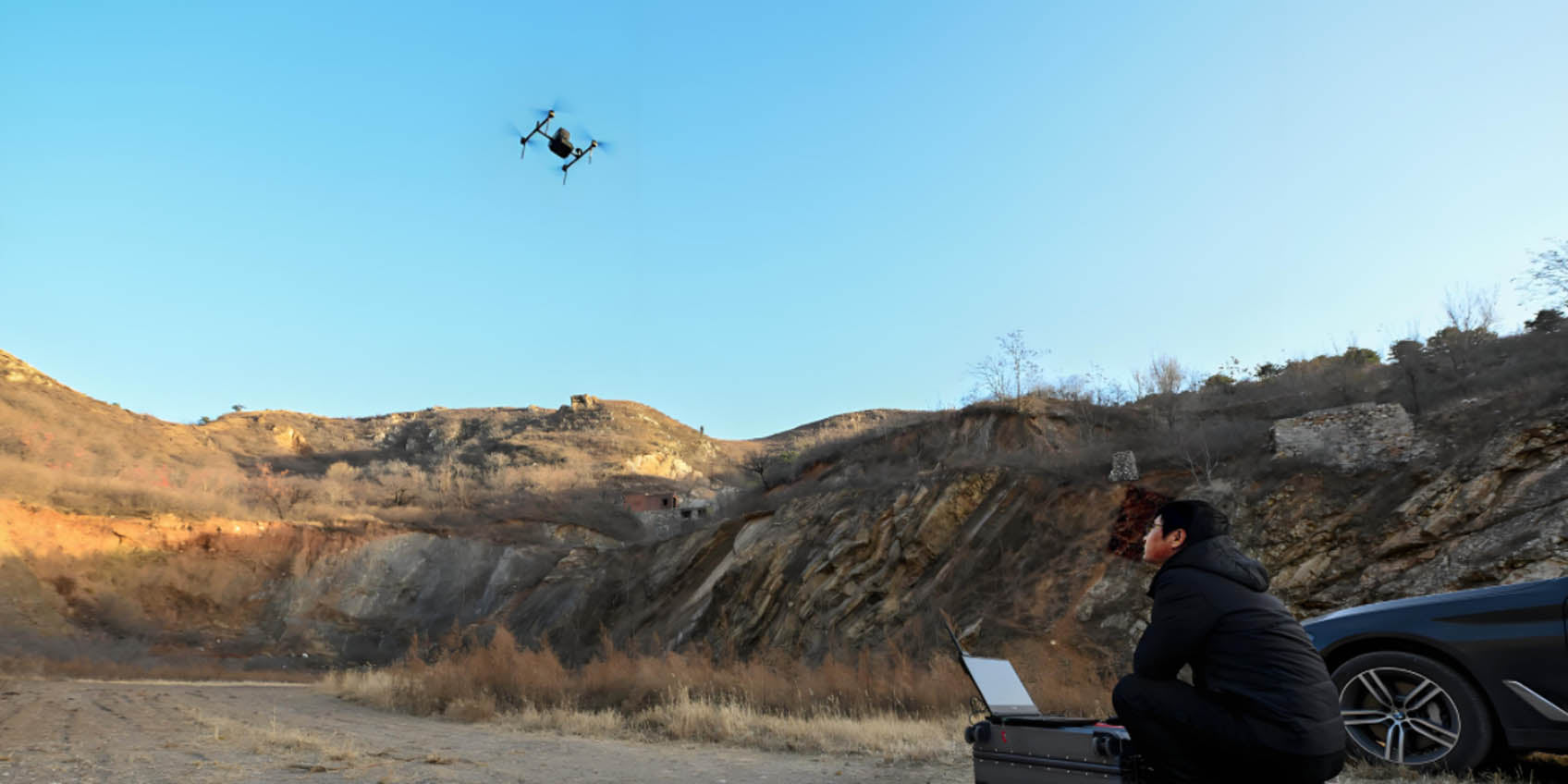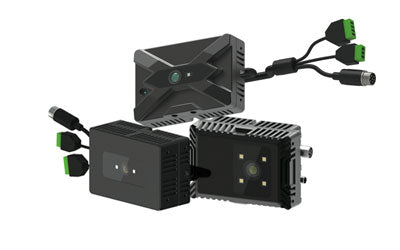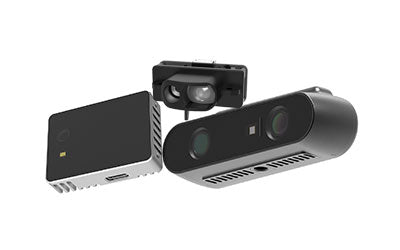Drones with ToF Sensors for 3D Scanning: A Tool for Precision Modeling

As drone technology advances rapidly, their applications are becoming increasingly diverse, especially in the field of 3D shape scanning, where ToF (Time-of-Flight) sensors are emerging as a key technology. ToF sensors calculate the distance between the sensor and objects by measuring the time of flight of light pulses, generating highly accurate 3D depth data. Coupled with the flexibility and efficiency of drones, ToF sensors allow for fast and precise 3D shape scanning, with applications in architecture, cultural heritage preservation, mapping, and film production.
How ToF Sensors Work in 3D Shape Scanning
What is depth?
Depth refers to the vertical distance from a reference point to an object or location. In technology, especially in 3D imaging and computer vision, depth refers to the distance between an object and a camera or sensor. By acquiring depth information, systems can generate 3D images or perceive environments. Depth sensors like ToF sensors measure distances in real-time, providing accurate spatial data for various intelligent applications.
ToF sensors emit near-infrared light or laser beams and calculate the distance based on the time it takes for the reflected light to return. Each measurement provides a single point of depth information, and thousands or millions of measurements form a complete 3D point cloud. Drones equipped with ToF sensors continuously scan moving objects, capturing their three-dimensional contours point by point, and integrating this data to generate a highly accurate 3D model.
Compared to traditional scanning methods like photogrammetry or LiDAR, ToF sensors offer several advantages. They process depth information more quickly in complex scenes and maintain high precision and stability even under poor lighting or highly reflective surfaces.

Advantages of ToF Sensors for 3D Shape Scanning with Drones
-
Fast and Flexible Scanning
Drones with ToF sensors can complete large-area scanning tasks in a short time. Unlike ground-based surveying equipment, drones have the advantage of flight, allowing them to quickly gather shape and depth information from different angles. Whether it's large-scale terrain modeling or scanning complex architectural structures, ToF sensors can collect real-time data, reducing survey time and improving efficiency.In tasks such as post-disaster assessment, engineering mapping, and bridge inspection, drones with ToF sensors can quickly obtain 3D models of the site, providing reliable data support for engineering decisions.
-
High-Precision 3D Shape Modeling
ToF sensors calculate object distances with nanosecond-level time differences, generating 3D data with extreme accuracy, with errors typically within centimeters or even millimeters. This high precision makes ToF sensors especially suitable for 3D modeling tasks that require detailed accuracy, such as cultural heritage preservation, artwork scanning, and architectural detail modeling.Drones equipped with ToF sensors can scan large scenes and capture intricate details of complex structures. For example, in the field of relic restoration, ToF sensors can help create detailed 3D models of ancient buildings and sculptures for digital preservation and restoration work.
-
All-Weather Operation
ToF sensors have strong anti-interference capabilities, unaffected by lighting conditions, and can perform stable 3D scanning in all weather and lighting conditions. Whether in bright sunlight or dark indoor or nighttime environments, ToF sensors can accurately capture depth information.This feature makes ToF sensors particularly advantageous in challenging environments, such as underground mine surveys or nighttime terrain scanning, where other technologies might struggle.
-
Efficient Scanning of Complex and Dynamic Objects
ToF sensors on drones can also handle the 3D scanning of complex surfaces and dynamic objects. For instance, in construction, drones can quickly scan the current shape of a building and compare it with the design to monitor construction progress in real-time. In autonomous driving, ToF sensors are used to scan road environments in real-time, helping drones create high-precision 3D maps for path planning and obstacle avoidance.When scanning complex objects, ToF sensors effectively deal with reflective surfaces, complex curves, or uneven textures. For example, when filming sculptures or modern artworks, ToF sensors can precisely record every detail, providing references for post-production modeling and artistic creation.
Applications of ToF Sensors with Drones
-
Architecture and Urban Planning
The use of drones with ToF sensors makes 3D shape scanning of buildings more convenient and efficient. In urban planning and construction, drones can scan the facades and overall structure of buildings, quickly generating high-precision 3D models for architects and planners to analyze design effects, monitor construction progress, or evaluate structural integrity.Drones can also document buildings at different stages through multiple flights, providing complete 3D data archives for the entire construction process and enabling digital lifecycle management of the building.
-
Cultural Heritage Preservation and Digitization
Cultural heritage preservation requires detailed recording and study of historical buildings and sculptures, and drones with ToF sensors can quickly and accurately scan these artifacts, generating 3D models. Experts can use these models for analysis and restoration planning. Additionally, digitized 3D models can be used for virtual exhibitions, allowing the public to appreciate precious cultural heritage through digital platforms.In sites that are difficult to access or cannot be touched directly, the combination of ToF sensors and drones can non-invasively capture detailed 3D data, enabling remote preservation and restoration of cultural heritage.
-
Film Production and Virtual Reality
High-precision 3D shape data generated by ToF sensors can be widely used in film production, game development, and virtual reality (VR). By scanning real-world environments with drones, production teams can quickly build 3D models of scenes for movie special effects, virtual backgrounds, or game environments.This technology significantly reduces the time and cost of set construction while providing higher realism for virtual experiences. For example, production teams can use drones to scan real buildings or natural landscapes, creating realistic 3D scenes for post-production or virtual filming.
-
Terrain Mapping and Engineering Surveys
For large-scale terrain mapping tasks, drones equipped with ToF sensors can quickly generate 3D maps of vast areas, especially in hard-to-reach locations like mountains or mining areas. In engineering surveys, ToF sensors provide high-precision 3D models, offering engineers detailed terrain information for evaluating geological structures, planning construction paths, and monitoring project progress.In disaster relief efforts, drones with ToF sensors can quickly scan affected areas, generating 3D models of disaster sites to help rescue teams formulate rescue plans and assess damage.
Conclusion: Drones with ToF Sensors Driving 3D Scanning Technology Forward
The integration of ToF sensors into drones has significantly expanded the applications of 3D shape scanning. With their high precision, fast scanning, all-weather operation, and superior performance in complex environments, ToF sensors are revolutionizing industries such as architecture, cultural heritage preservation, and film production. As technology continues to evolve, the combination of drones and ToF sensors will open up more possibilities for 3D shape scanning, making precision modeling more efficient and widespread.
Synexens 3D Of RGBD ToF Depth Sensor_CS30
Our professional technical team specializing in 3D camera ranging is ready to assist you at any time. Whether you encounter any issues with your TOF camera after purchase or need clarification on TOF technology, feel free to contact us anytime. We are committed to providing high-quality technical after-sales service and user experience, ensuring your peace of mind in both shopping and using our products
-
Postado em
CS30





